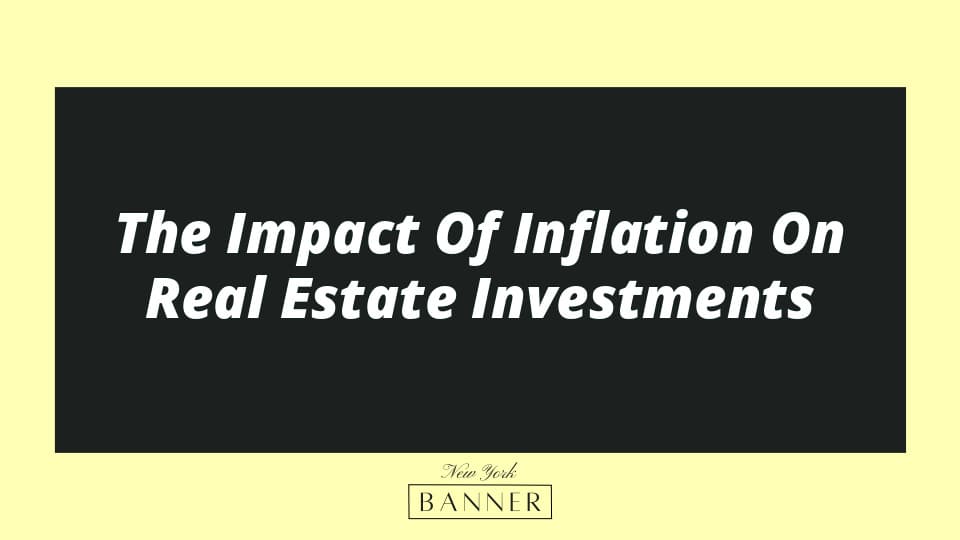Inflation is a critical factor that can impact real estate investments. Inflation is the rate at which the general level of prices for goods and services rises, and it can erode the purchasing power of money over time. In this article, we will explore the impact of inflation on real estate investments and provide ten tips for investors to protect their assets.
1. Inflation and Real Estate Prices
Inflation can impact real estate prices in several ways. As the general level of prices for goods and services rises, the cost of construction materials and labor also increases. This can lead to higher construction costs and, ultimately, higher real estate prices. Additionally, inflation can lead to higher interest rates, making it more expensive for buyers to finance real estate purchases.
2. Inflation and Rental Income
Inflation can also impact rental income. As the cost of living increases, tenants may demand higher wages, leading to higher rental rates. However, if rental rates do not keep pace with inflation, the real value of rental income can decrease over time. This can lead to lower returns for real estate investors.
3. Inflation and Debt
Inflation can impact debt in several ways. As inflation increases, the value of money decreases, which means that the actual value of debt decreases as well. This can make it easier for borrowers to repay their debts as the value of their debt decreases over time. However, inflation can also lead to higher interest rates, making it more expensive for borrowers to finance their deficits.
4. Inflation and Appreciation
Real estate investments can appreciate over time, which can help investors protect their assets against inflation. As prices for goods and services rise, the value of real estate investments can also increase. This can help investors maintain the purchasing power of their assets over time.
5. Inflation and Diversification
Diversification is a crucial strategy for protecting real estate investments against inflation. By diversifying their investments across different asset classes and markets, investors can reduce their exposure to inflation risk. This can help investors maintain the value of their investments over time, even in the face of inflation.
You may also like Real Estate Versus Stocks: Which Is A Better Investment? Check out the article here: https://thenybanner.com/index.php/2023/05/02/real-estate-versus-stocks-which-is-a-better-investment/
6. Inflation and Location
Location is an essential factor to consider when investing in real estate. Inflation can impact different markets, depending on supply and demand, interest rates, and economic growth. Investors should carefully research local market conditions and consider investing in markets that are less vulnerable to inflation risk.
7. Inflation and Leverage
Leverage is a crucial strategy for real estate investors, allowing them to finance their investments with borrowed money. However, leverage can also increase the risk of inflation. As inflation rises, the value of debt decreases, which means that the actual value of leverage also decreases. This can lead to lower returns for real estate investors.
8. Inflation and Maintenance Costs
Maintenance costs are an essential factor to consider when investing in real estate. As construction materials and labor cost increases, the cost of maintaining real estate investments also increases. This can lead to higher maintenance costs and lower returns for real estate investors.
9. Inflation and Taxation
Taxation is an essential factor to consider when investing in real estate. Inflation can impact the tax implications of real estate investments, as the value of real estate investments can increase over time. This can lead to higher capital gains taxes and other taxes on real estate investments.
10. Inflation and Hedging
Hedging is a strategy that can help investors protect their investments against inflation. Hedging involves investing in assets negatively correlated with inflation, such as gold or other commodities. This can help investors maintain the value of their investments over time, even in the face of inflation.
In conclusion, inflation is a crucial factor impacting real estate investments. Inflation can affect real estate prices, rental income, debt, appreciation, diversification, location, leverage, maintenance costs, taxation, and hedging.
By carefully considering these factors and following these ten tips, real estate investors can protect their investments against inflation and maintain the value of their assets over time.

